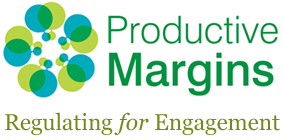On September 23rd 2014, the University of Bristol hosted the event Inspiring Muslim Women, featuring presentations by Baroness Sayeeda Warsi (House of Lords and former government minister), Sughra Ahmed (President of the Islamic Society of Britain) and Fahma Mohamed (FGM activist and trustee of Integrate Bristol) on their experiences of being active in public life.
The participation of Muslim women in public life has received a great deal of attention in recent times. Frequently such debates begin by positioning women as absent from, or lacking skills to participate in or contribute to, public life and wider society. This event featured reflections by three inspirational and pioneering women who in their various fields have made major contributions to British public life.
On September 23rd 2014, the University of Bristol hosted the event Inspiring Muslim Women, featuring presentations by Baroness Sayeeda Warsi (House of Lords and former government minister), Sughra Ahmed (President of the Islamic Society of Britain) and Fahma Mohamed (FGM activist and trustee of Integrate Bristol) on their experiences of being active in public life.
The participation of Muslim women in public life has received a great deal of attention in recent times. Frequently such debates begin by positioning women as absent from, or lacking skills to participate in or contribute to, public life and wider society. This event featured reflections by three inspirational and pioneering women who in their various fields have made major contributions to British public life.
BARONESS SAYEEDA WARSI is a lawyer, a politician and member of the House of Lords. She was the first Muslim woman to serve in Cabinet. She has served as Senior Minister of State at the Foreign and Commonwealth Office, as Minister for Faith and Communities at the Department for Communities and Local Government and as co-Chairman of the Conservative Party. She resigned from her post in August 2014 on the issue of the government’s stance on Gaza, stating ‘Long after politics has come and gone, I want to be able to live with myself.’ In her presentation, Sayeeda Warsi reflected on her early experiences of political activism, revealing the opposition she faced as a Muslim woman entering politics both from within her local community and sections of her party. She went on to discuss the significance of Islam in her political life, arguing ‘let not today’s men interpret your faith in ways that deny you the rights that your faith gave you 1400 years ago’.
‘let not today’s men interpret your faith in ways that deny you the rights that your faith gave you 1400 years ago’
SUGHRA AHMED is a Cambridge academic and chaplain, she has been active in interfaith initiatives and she is currently President of the Islamic Society of Britain – the first woman to be elected as head of a national Muslim organisation. She was recently awarded the Noor Inayat Khan Memorial Award for Muslim Woman of the Year at the 2014 British Muslim Awards. In her presentation Sughra Ahmed argues that when we think of Muslim religious leadership, it rarely includes women, and that this is problematic for the development of religious leadership that can connect with (especially young) British Muslims. She argues that female religious leadership needs to emerge from being relegated to the home or community to find greater recognition within the public domain.
‘when we think about religious leadership, it doesn’t include women.. how does that image of religious leadership engage with young British Muslims?’
FAHMA MOHAMED is a student and trustee of Integrate Bristol. She is a leading activist in the campaign against Female Genital Mutilation – securing support from the government, the UN, the Guardian and thousands of signatories to an online petition against FGM. Explaining her activism, she has stated ‘We are not going to be quiet. We are not going to shut up. It has taken us this long just to get people talking about it – we don’t care how long it takes to make people listen.’ In her presentation she outlined some of the obstacles the campaign against FGM has faced – not least in terms of talking about genital mutilation in public. She insisted that such abuse should be regarded not simply as a Muslim issue, but as an issue that affects girls. ‘For the record’, she concluded, ‘we are not deprived, we are privileged’.
‘for the record, we are not deprived, we are privileged’
Between the talks, a recent dance video against gender violence was shown, in which Integrate Bristol invite to ‘Use your head!’:
This event was a significant element of a research project that is exploring spaces for women’s effective engagement in public life. Drawing on principles of co-produced research, this project is being carried out by a team of researchers from the University of Bristol working with a Steering Group of Muslim women from the city of Bristol.
The first phase of the project began by exploring the participation and contribution of Muslims in local democratic life in Bristol, through the development and work of a local initiative: Building the Bridge. The report on Building the Bridge reveals the ways in which Muslim participants helped to co-create Building the Bridge as space for substantive Muslim participation in local governance in Bristol. An important aspect of the work of Building the Bridge was its emphasis on enhancing women’s involvement in local decision-making. This research project builds on that aspiration to explore: what are the mechanisms for Muslim women’s effective engagement in local democratic life?









